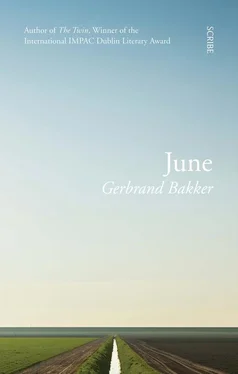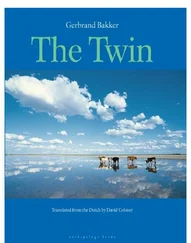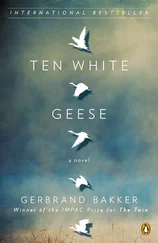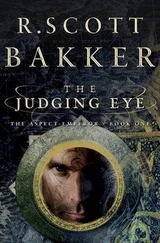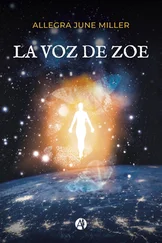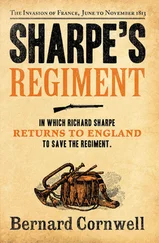After the coffee, his wife and Dieke leave on the bike for the village. For appearances’ sake, Klaas walks through the front garden to the cowshed, where he really doesn’t want to be. Not that it’s that much work: clear the mound of silage from the feeding passage with the tractor, muck out the calf stalls, give them a spray with the high-pressure hose and you’re done. Monday, I’ll do it Monday. It’s the weekend now, and maybe in a couple of days it won’t be so out-rageously hot. He pulls open the toilet door. It smells fresh, of lemon, the bowl is spotless and there’s water in it. He doesn’t know who does this, who takes the trouble of coming here every now and then to flush the toilet and maybe even clean it with the brush. There are no spiderwebs in sight and even the light-brown tiles are clean. He unzips his flies, lowers his jeans, turns and sits down. He leaves the door ajar. After wiping his arse — there’s even a roll of toilet paper under the calendar from the company that sold them the tractor — he tugs his jeans back up. The calendar’s behind. He rips off the old days, tears them up and throws the pieces into the toilet bowl. He hesitates about whether or not to push the button on the cistern. In the end he does, but doesn’t stay to watch the water gush through. He closes the door softly behind him.
On a shelf in the milking parlour is the old radio that used to go on twice a day. Sometimes he forgot to turn it on and the cows reminded him by getting restless. He turns it on. Classical music, violins. He twists the knob back a little too energetically and the radio tumbles off the shelf, landing corner first on the white-tiled floor and bursting open. The batteries skid into the milking pit, the volume knob rolls out through the open door and into the feeding passage. Klaas watches it roll away, then follows it without tidying up the mess.
Stepping out through the front doors onto the concrete path that leads to the road, he sees a hazy strip of clouds in the west. Rekel bumps up against his legs. ‘Here, boy,’ he says, leading the way through the front garden and back to the yard. There, he picks the heavy dog up and descends carefully to the ditch, near the bridge. With a slight swinging movement, he throws Rekel into the water, overbalances, comes close to falling in after the dog, but is able to grasp the bridge railing just in time to steady himself. The dog circles back, snorting, makes as if to climb up out of the ditch on Klaas’s side, then changes his mind and swims over to the other side where the bank isn’t as steep. He climbs up out of the water like an otter, his tail stuck to his belly and his head down to the ground, then shakes himself thoroughly once he’s reached the top of the bank. Only then does he turn around. Klaas and the dog exchange glances. ‘Why don’t you do that yourself sometimes?’ Klaas asks. Rekel just stares at him impassively, then saunters along beside the ditch to the far corner of the garden and starts an extended sniffing of the root of a willow. It’s the last pollard in the row of five: runty and stunted for years now, with a small head, probably because it’s too close to a much older pear tree and has never had enough light and air. Or is it because of that other dog? Is that what Rekel can smell, even though it was buried there some twenty-five years ago?
The woman who thinks she’s responsible for the cemetery leans on her worktop with both hands to look out through her kitchen window and across her back garden at the hedge around the cemetery. The hedge is some kind of conifer and thick, except directly across from her back garden, where a section suddenly turned light brown two years ago. After which, council gardeners removed quite a few conifers. Without replacing them. Besides the hole and the headstones, the woman can’t see a thing. She takes her hands off the worktop and shuffles through to the living room, glancing at the calendar on the way past. It’s one she bought late last year with paintings by Ada Breedveld. Not that she’d ever heard of Ada Breedveld: the paintings just appealed to her. Herm dinner is written under today’s date.
There are newspaper cuttings spread out over the coffee table. The light in the stifling-hot through room is yellow; she made sure to lower the awning early this morning. Apart from a bra, she’s not wearing anything on her upper body at all. She sits down in one of the easy chairs and shuffles the clippings. She doesn’t need to read them, she knows perfectly well what they’re about. ‘Yes, Benno,’ she tells her dog. ‘Yes, yes, yes.’ Next to the clippings is the framed photo of her husband. ‘We’ll go over there again later,’ she tells the dog, which is enormous, with a broad head and lots of fur. ‘Have they gone completely mad?’ Shit: that’s what the clippings are about. Cow shit. And about ‘an unidentified vandal or vandals’ and ‘an investigation that has been launched’. She hasn’t seen a single police officer over there once. Now she stops to think about it, she never sees any police anywhere, not even cycling or driving past.
The dog, which has been staring out the window lethargically, walks over to the woman and starts to lick her knees. She pulls her skirt up a little and tucks the fabric into the waistband. ‘Good boy,’ she says. ‘Your mistress is boiling.’ She slips a thumb under a bra strap to wipe away the sweat. Just when she’s about to get up to turn on the radio, she sees a woman passing on a bike with a child on the back. A red-headed girl who, judging by her mouth, is talking nineteen to the dozen. She’s wearing a small rucksack. She doesn’t know the woman; there are so many people she doesn’t know in the village. She only moved back from Den Helder after her husband died, mainly because he wanted to be buried here. If it had been up to her, she would never have come back. People have left, died, been born, moved, disappeared. She has no desire to start over again. There are all kinds mixed up together on the new estate, even a Negro and a family of Muslims, though she doesn’t have a clue what country they’re from. She’s standing there in her bra, her thumb now under the other bra strap, and she sees the woman and the child both look up at the front of her house. I’m virtually naked, she thinks to herself, only just realising. I’m standing here on display for the whole neighbourhood. Next thing, that Negro will come walking past! She tries to think of nasty things about Negroes — sneaking into other people’s houses, stealing, lying, that little black kid, is he the Negro’s son? — but doesn’t get very far; she doesn’t want the word ‘rape’ in her head, even if that’s nasty too, but it’s the one that sticks. She hurries into the hall and, from the hall, upstairs to put on a blouse.
Counting trees. That’s what Dieke does until she gets to a number that’s too big for her. She starts again, but is soon distracted by other things. Farms, the prospect of going to the cemetery, where she’s never been before, passing tree trunks, her mother’s hips that grow and shrink under her hands, grow and shrink, a grey heron standing in the ditch as still as if it’s in a photo. When they pass the sign for the village, she says, ‘Will you do the houses?’
‘Dilemma,’ her mother says. Big white house. Tall, more than anything, with a red-tiled roof.
‘Moving On.’ House with geraniums on the windowsills, and curtains.
‘Let ’Em Talk.’ Junk in the front garden, shopping trolleys, railway sleepers, no plants in the windows.
‘Eben-Ezer.’
‘What’s that mean, Mummy?’
‘You know I don’t know what it means, Diek.’
‘Why not?’
‘I just don’t. Why do you keep asking? I’ll look it up for you one day. Hi, hello!’ Her mother waves at a woman pulling up weeds in her front garden. The bike wobbles. Dieke grips her mother’s hips extra tight.
Читать дальше
